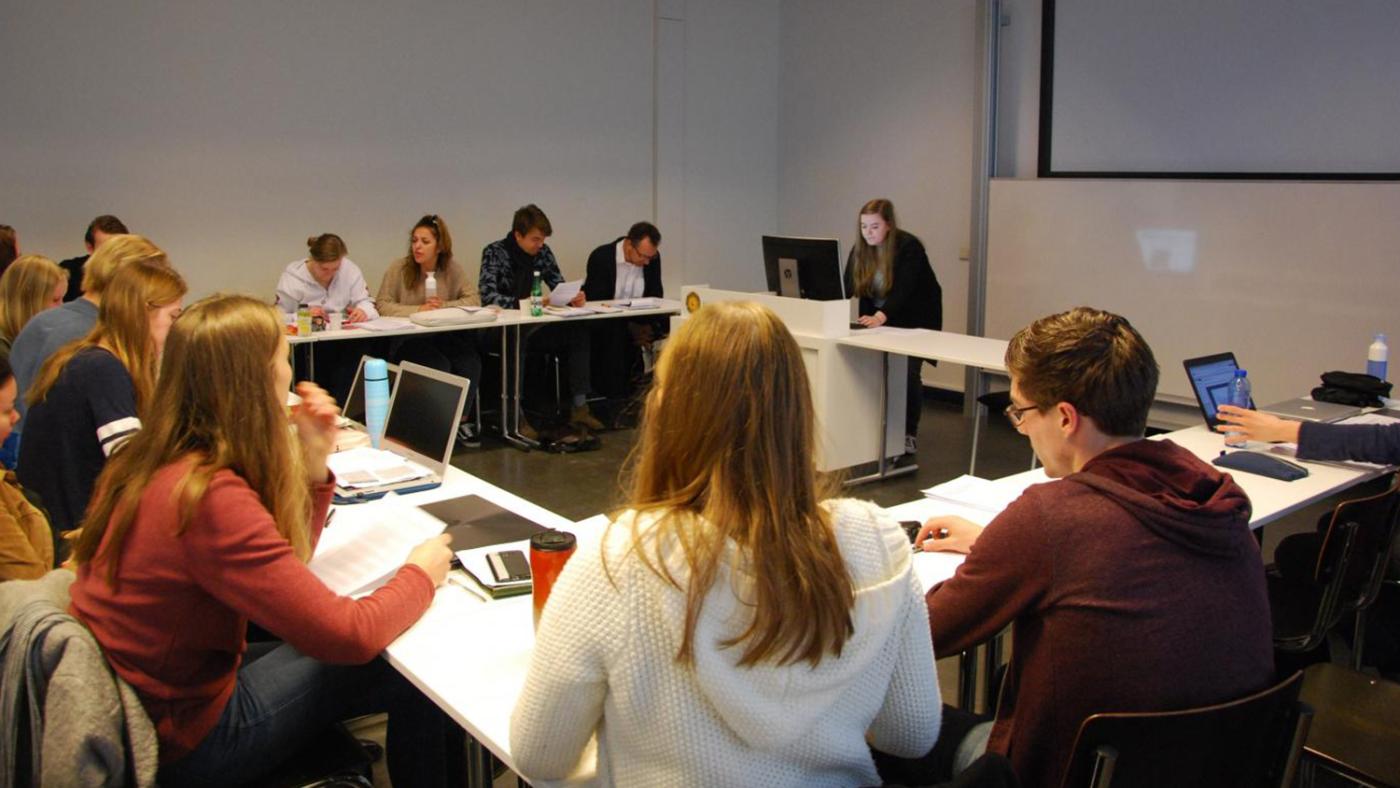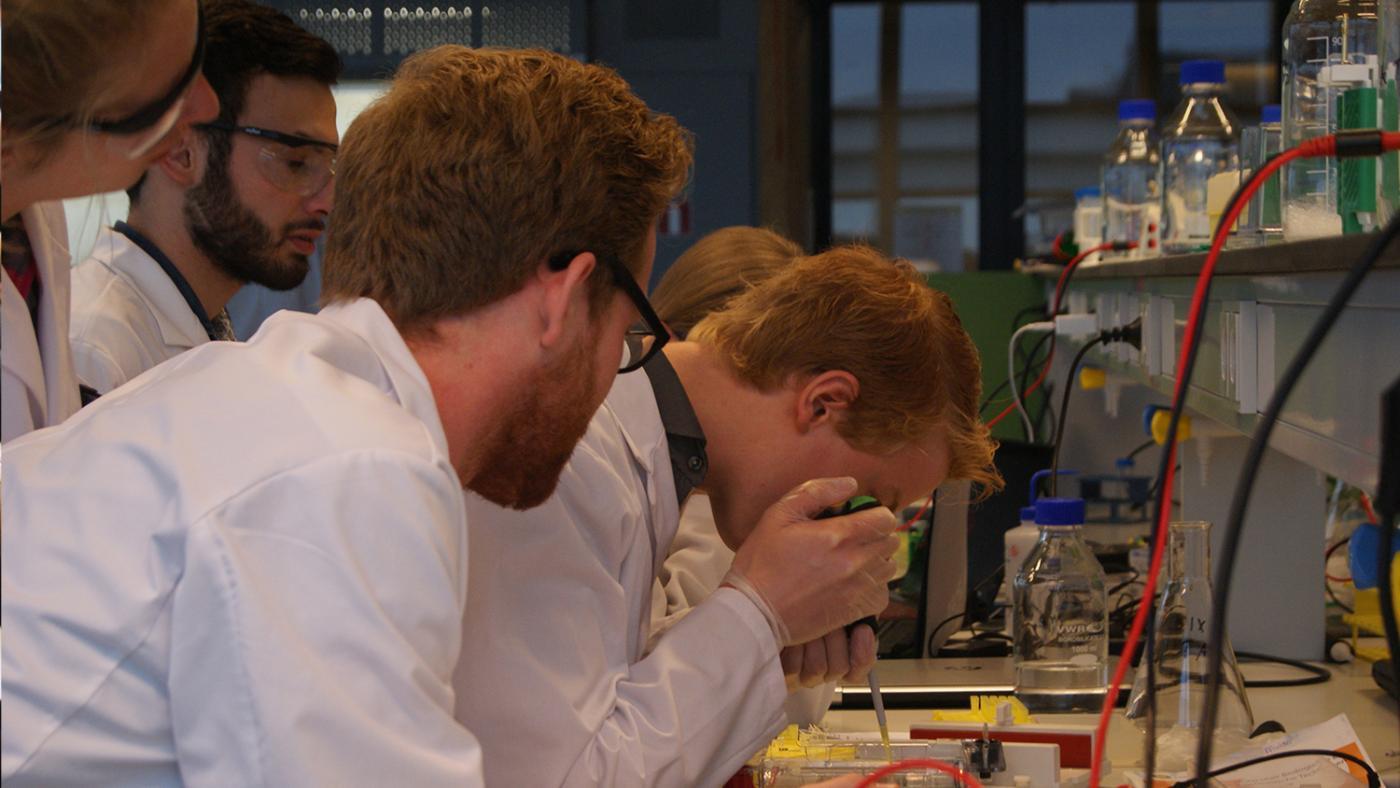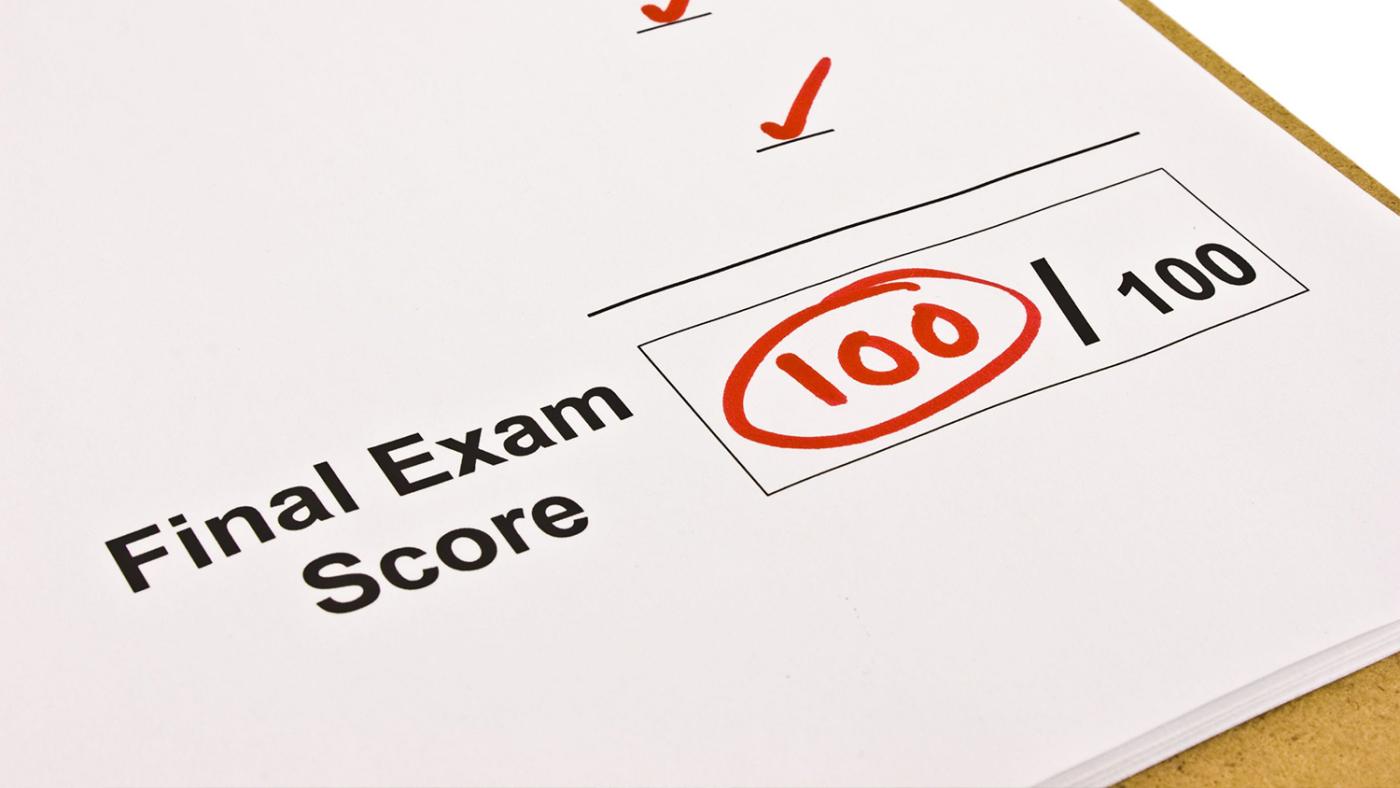Are they allowed to review classmates' exams?
Student assistants often doing work that isn't allowed or generates tension

Currently, Utrecht University employs approximately 900 student assistants, who spend an average of seven hours a week supporting teaching activities, research, and administrative tasks. This is a valuable part-time job for many students, as it is often considered to improve their resume. However, some assistants are given too much responsibility and are not qualified for the teaching tasks they have to perform. This was revealed through interviews with nine student assistants.
According to Utrecht University's regulations for student assistants, the tasks attributed to this type of employee should match the student's level and never be related to the programme they're enrolled in. Nevertheless, five out of the nine student assistants interviewed by DUB indicate that they lead tutorials and grade assignments for fellow students at the Bachelor's level.
This regulation is an additional clause to the collective labour agreement (Dutch acronym: CAO). It resulted from the Local Consultation, a consultation between the Executive Board and trade unions. Some faculties only adhere to the regulation partially. For example, the Faculty of Humanities hardly employs student assistants to help with tutorials and grading exams, while the faculties of Social Sciences and Science do employ them for that purpose, often in the same programme the student follows.
A disaster
For instance, students from the second and third years of the Bachelor's in Mathematics are employed as assistants to guide tutorials for first-year students and grade the papers they submit, explains Programme Director Barbara van den Berg. In her view, it would be a disaster if this was no longer allowed. "We would no longer be able to offer some of our tutorials if we were to follow this regulation. Teachers would be forced to work overtime more often. We already put in a lot of overtime in the evening so, this means we'd have to work through the night."
She claims that, if the regulation were to be enforced in the future, it would be detrimental not only to the programme but also to student assistants themselves, as they learn didactic skills and gain a much deeper understanding of the subject matter through their work. "It's only when you explain how to approach a problem to someone else that you truly understand why a specific method or approach works." Van den Berg suggests that the regulation should be interpreted differently, as a prohibition on hiring student assistants for work already covered in the student's programme. "It would seem more logical for the university to adopt such a regulation."
Like Van den Berg, Maarten van der Smagt, Programme Director for the Bachelor's in Psychology, was not aware of the regulation and is critical of it. "Students who have completed a certain course one or two years earlier are in the ideal position to guide first-year students in that same course," he affirms. At Psychology, student assistants are used to guide a few tutorials and practical seminars. Van der Smagt claims that replacing student assistants with teachers would be very expensive and also a waste of learning opportunities and educational quality. "If you look at course evaluations, you'll see that student assistants are often rated higher than teachers. They have the same perspective and therefore are better equipped to understand the challenges students face," he says.

A student assistant guiding a practical activity. Photo: DUB
Loyalty issues
After talking to the Local Consultation, DUB discovered that the regulation for student assistants has been in place for a long time. It is not clear why it has its current form. Paul ter Veld, a spokesperson for the unions in the Local Consultation, suspects that the regulation aims to prevent integrity and loyalty issues between student assistants and their peers. However, he too finds such a broad text problematic: "It wouldn't make sense to completely forbid student assistants from working for their own programmes." His conclusion: the regulation needs to be revised.
Programme director Van den Berg understands that grading papers or guiding classmates can lead to loyalty issues and other integrity concerns, but, according to her, these problems are not happening in the Mathematics Bachelor's. "We try to minimize the risk by introducing enough checks and balances. There are usually two student assistants per group and students can now evaluate the student assistant throughout the semester," she explains. A few years ago, the programme invested "quality funds" to hire additional student assistants and train them so that tutorial groups would be smaller. The goal was to improve the quality of education. Although risks will remain, it does not outweigh the many advantages of using student assistants, she concludes.
Vague job description
However, half of the student assistants interviewed by DUB indicate that there are problems. For example, they feel overburdened by too much responsibility, feel tense when they have to grade their acquaintances' exams, and uncomfortable with their dual role as a student and a student assistant.
The student assistants interviewed were unaware that they were not allowed to perform certain tasks. In general, they are satisfied with their part-time job. Four students mentioned situations in which they felt uncomfortable with the level of responsibility attributed to them, such as when Pepijn, a student assistant at the Faculty of Social Sciences, was supposed to come up with questions for an exam. "It was challenging for me to come up with good questions. Fortunately, the PhD student teaching the course was always available for consultation."
Tasks not directly related to teaching are also perceived as a significant responsibility. For instance, student assistant Famke accompanied a study trip done by the Descartes College Honours programme, but she didn't know she would be the only supervisor there. "Going abroad as the sole person responsible for a group of thirty students was quite strange and not entirely comfortable. But everything went well in the end." Other tasks that students find demanding include grading fellow students' exams and organising seminars independently.
In addition, it is not uncommon for student assistants to be asked to work more hours than stipulated by their contracts. Luna, a student assistant in the Bachelor's in Art History, says that it pays off to be assertive when teachers ask too much. "Sometimes, they ask if I can scan a few hundred pages a day before the weekend. That is simply too short notice, not to mention it would use up all my hours for that month. You have to turn down such requests," she says, noting that not all teachers will handle such rejection well. Two other student assistants mentioned that they could compensate for overtime by working fewer hours in the following weeks.
Vidius Chairman Midas Urlings acknowledges that students are often asked to do too much when working as student assistants. "There is a general understanding that you can make students work hard for little compensation, which is why they are often given too much responsibility or have to work overtime," he recognises. "The student may end up with more and more work on their plate, especially when the job description is vague, a trend also observed by students doing internships or serving on a student organisation's board." Despite the risk of getting too much work to do, he believes that serving as a student assistant can be a valuable experience. "It's a great part-time job that allows you to gain a lot of experience with teaching and working in an educational institution."

Student assistants are often asked to grade exams. Photo: 123rf
Gray area
In addition to preparing lectures and guiding tutorials, student assistants are also deployed to grade assignments and exams quite often. Stories circulate among former student assistants in the Faculty of Science that student assistants had to grade their friends' exams, with teachers only checking graded exams randomly.
Hence the stricter policy adopted by that faculty, according to which student assistants are supposed to work with an answer key and the assignments should be ministered by different teachers and student assistants. "Apart from midterm assignments, all the exams we grade are reviewed by teachers," says a student assistant in the Mathematics Bachelor's. Although, in principle, student assistants are not supposed to grade exams in this Bachelor's, an exception has been made in consultation with the examination committee.
When grading exams, student assistants often come across familiar names, but they don't think this is an issue. "Since each assistant and each teacher evaluate a different set of questions, you don't find yourself in a position where you can give high grades to your friends or acquaintances," says former student assistant Simon, who assisted in various Mathematics and Physics courses. "Additionally, we work with an answer key that clearly explains how many points can be awarded at each step." Simon notes that it's quite easy to be hired as a student assistant, echoing other assistants interviewed for this article. "Usually, it suffices to have completed the course in question and send in your transcript," he says.
Legal text
Whether student assistants are allowed to help grade exams depends on the context, says Anton van den Hoeven. As a lawyer in the Legal Affairs department of Utrecht University, he frequently gets questions from teachers and examination committees about what is allowed when it comes to student assistants. According to him, this is a grey area. Examiners are ultimately responsible for giving grades and student assistants may only do "preliminary work", based on an answer key. "The examiner must have sufficient insight and control over how the student assistant is grading fellow students," he says. Checking their work at random is not enough, therefore. Exams where answers can be clearly interpreted, such as multiple-choice tests, are not a problem, according to Van den Hoeven.
Entering this grey area comes with a risk because it is not always clear where dark grey ends and black begins, he says. Nevertheless, he can imagine that outsourcing preliminary work can have its advantages. "Student assistants can easily take on simple but time-consuming tasks and thus alleviate teachers' workloads."
Betray or neglect?
Vidius chair Midas would prefer student assistants not to grade fellow students' exams. "Even if it were allowed, it sounds very strange to allow student assistants to assess people they know. Even if you're only assigned to grade a single question, that's still playing with fire." In his opinion, student assistants who grade exams and perform other teaching tasks for their programme can suffer from the dual role and tensions with other students. "Education relies on group dynamics, especially tutorials, where debates and feedback from your peers are involved. Ideally, the university should prevent work from hindering student assistants' social life and affecting the sense of community of the class."
Some student assistants indeed struggle with a dual role. For example, Luna says that the trust relationship she has with teachers can sometimes clash with her role as a student, especially since she also represents fellow students in the programme committee of the Bachelor's in Art History. "Sometimes, teachers ask me to print out the exams my best friends will take shortly afterwards. Although teachers can trust me, this makes me feel awkward."
She has a dual role even when surveying exams. "I don't mind surveying while my friends take an exam – and I don't think they mind either – but it's weird nevertheless," she says. "Imagine if a friend of mine pulls out a cheat sheet during the exam. I wouldn't know what to do. If such a situation arises, I would have to make a tough choice: Should I betray my friend or remain silent, this neglecting my role as a student assistant?"